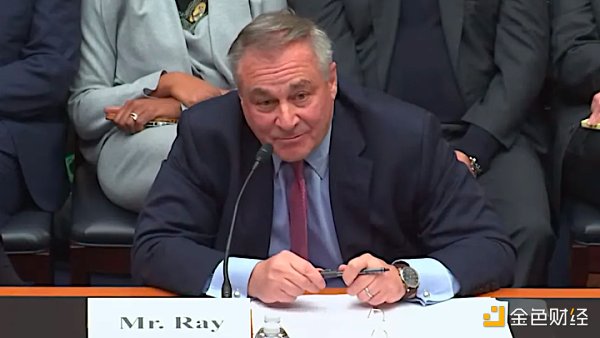Strong alliance, EY, Microsoft and ConsenSys build Ethereum middleware Baseline Protocol
EY, Microsoft and blockchain consulting giant ConsenSys have jointly created the "Baseline Protocol", a middleware solution for large companies to conduct private communications and transactions on the Ethereum blockchain.
The project was announced earlier today. According to the statement, the agreement is "an open source project that combines advanced technologies in cryptography, messaging, and blockchain to execute secure, private business processes at a low cost through the open Ethereum mainnet." The agreement will allow confidential and complex cooperation between businesses without leaving any sensitive data on the chain.

How to get along with the public chain
Whether blockchain can be used to process corporate data has been a subject of controversy. A big problem with using public blockchains is that any data stored on the network is public. This is a tricky issue for large companies, and they don't want to put their private transactions on a shared blockchain.
- "If you can be the president for a day, let BTC become the national currency." Why is investment boss Tim Draper so obsessed with Bitcoin?
- What do those U.S. presidential candidates think about cryptocurrencies?
- How the most famous DeFi project processes data in the repository
This open source project aims to synchronize the "internal record system" through the Ethereum blockchain, including ERP (enterprise resource planning) data, CRM (customer relationship management) and other private business processes.
In simple terms, Baseline provides a set of tools-including zero-knowledge proofs-that allow the privacy of business transactions, smart contracts, and communications so that business users can decide what they want to share with whom.
Zero-knowledge proof (ZKP for short) is a complex form of cryptography that allows both parties to verify without sharing or revealing the underlying data. Baseline uses EY's Nightfall ZKP on Ethereum. It also leverages Whisper for secure point-to-point messaging between partners.
The agreement's Github reveals that its purpose is to enable standard ERC-20 and ERC-721 tokens to conduct fully confidential transactions on the Ethereum blockchain. It also states that the agreement is "an experimental solution and is still under active development", which seems to indicate that everything is not fully prepared.
Paul Brody, head of global blockchain at EY, said he would not call this technology experimental. Although it is new, it is being actively developed and is actually "quite mature".
"We expect to launch an enterprise-grade product based on this technology soon," he said, adding that he expects to launch a new product related to Baseline as early as next month.
How does Baseline work? How to do it?
Brody says:
"Companies use a variety of complex internal systems for transactions, but when they communicate with each other, they mostly use email, spreadsheets, and EDI (electronic data interchange), basically texting."
Based on Baseline, Brody says there are two things on the blockchain. The first is "notarization"-the hash of the file and the timestamp used to authenticate the file. (Note that you have not placed the document on the blockchain.)
The second thing is the token, which can be created, traded and managed on the blockchain.
These tokens are the key inputs and outputs of the business process. This is one of the uses of privacy brought by Nightfall ZKP-the actual token (asset) transfer between the two parties. As explained by Brody, Baseline also guarantees privacy through smart contracts, business logic, such as the quantity and price of goods negotiated in contracts or purchase orders.
"For complex things, we will notarize; for those things that we want to promote decentralized services, we will do our best to create a digital token. Blockchain is more convenient, and it is also more designed. Support for digital tokens. "
He said enabling these communications, as well as using tokens on the blockchain, will allow all parties to access other tools on the blockchain, such as obtaining loans through a decentralized financial platform. (MakerDao, who happens to be one of the founding members of this project.)
Solve business problems
For example, a large company wants to buy something from a supplier. They send purchase orders for 1,000 parts worth $ 1 million through the Ethereum mainnet. Suppliers may require working capital. "I can send money orders using middleware, but on the blockchain, there is also a complete set of decentralized financial services. In theory, the digital token representing my purchase order is the security guarantee that my supplier uses to obtain working capital. "Brody said.
He said that Baseline can do complex transactions, but at the same time get privacy protection, so other companies can't see how much money you have borrowed. He believes that this will allow businesses to use blockchain for business transactions, just as people use the Internet.
On a larger level, the Ethereum blockchain is no longer used as a settlement layer for recording transactions, but is always available as an intermediate layer or integration layer, with no downtime and remains the same, and all partners on the network are Accessible.
In Consensys's vision, the technology will ease all the "heavy work" traditionally involving connecting different ERP and CRM systems to their internal databases, while maintaining data integrity.
Where Baseline starts
In mid-2019, Ernst & Young, ConsenSys, and Microsoft launched a supply chain project code-named "Radish34," which uses Ethereum to calculate bulk discounts in real-time across a series of purchase orders. This is the beginning of Baseline.
A company called Unibright did most of the development and was one of the founding members of the agreement team.
Unifan's founder and CTO Stefan Schmidt explained in a video:
"Every time a business process or state changes in a private network, the public Ethereum mainnet will be used as middleware to synchronize these states and build a public frame of reference."
The development of the Baseline protocol was funded by the Ethereum Foundation and the Enterprise Ethereum Alliance. Other companies on the steering committee include AMD, ChainLink, Core Convergence, Duke University, Envision Blockchain, MakerDAO, Neocova, Splunk, Provide, and W3BCLOUD.
We will continue to update Blocking; if you have any questions or suggestions, please contact us!
Was this article helpful?
93 out of 132 found this helpful
Related articles
- Demystifying the secret flow of funds: the idle fish, Alipay, 58 cities, Baidu Post Bar are "occupied"
- Introduction to blockchain 丨 10 hidden dangers every novice should know before holding crypto assets
- True or false demand? Comparison of Blockchain Invoices in Beijing, Hangzhou, Guangzhou and Shenzhen
- The market is down and production is approaching. How long will the mining winter continue?
- February global block chain private equity financing amounted to 1.295 billion yuan, China and the US market heating up
- U.S. stocks surge, bitcoin bearish: Cryptocurrency market bottleneck or difficult to break
- Post-Supreme Court case: "Historic Day" for Indian cryptocurrency






